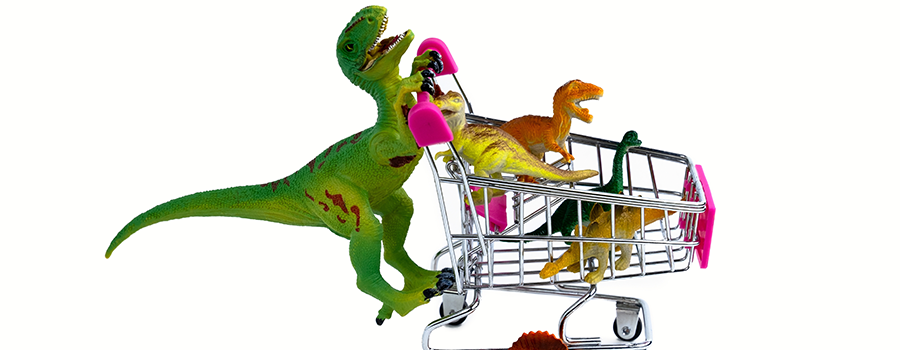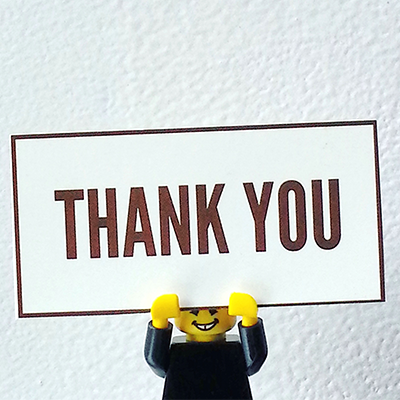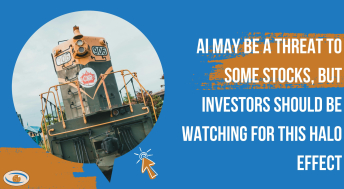It is no surprise that COVID has materially changed how we live our lives. From being isolated in our homes, physical distancing from our family and friends and in many cases being out of a job, this crisis has touched on nearly every aspect of our daily lives. Such an unprecedented event can be expected to have lasting impacts, but what might these impacts be and from an investment perspective, how might we expect this to play out?
We could break this into multiple pieces but the general idea here is that if there is a trend to something moving to the digital space, this crisis will only expedite it. There are many services that could be included here but some obvious ones are:
- Online shopping
- Digital payments (versus cash)
- Online banking
- Grocery pickup and/or delivery
- Proliferation of communication tools – Social media, chat, video
- Work from home tools
- Entertainment (Streaming and gaming)
The common thread in this list is that if there is a physical stream to receive the product or service and a digital stream offering the same, the digital method will continue to grow and at a faster pace. Most of these trends are not new but now that almost all of society is forced to use them digitally, it will only confirm and accelerate the trends.
Entertainment and gaming are worth highlighting in the list above. While the gradual proliferation of digital alternatives in this list was probably inevitable in most scenarios, entertainment stands out as the largest beneficiary. In a pre COVID world, we had other things to do. We would visit friends and family, go to concerts or parties or restaurants and anything in between. Now that we cannot do any of this, consumers are looking for ways to fill the void and they will find it through streaming and gaming. This is interesting because it has potentially opened up these services to new markets that never would have considered them in the first place. A retiree who used to golf year-round might check out a video streaming subscription to fill time. Someone who played competitive sports might now try that new sports video game with their free time and find that they love it. Once value is found in these services, it is likely the consumer will stick to using them in the future as well.
Readers are also likely aware that many ‘work from home’ stocks have been doing very well as of late. This makes sense, as their user base is now growing at a fast rate as we are all ‘forced’ to adopt some of these tools. What is most interesting is how some of these tools are now seeing an increase in their use cases. What we used for online meetings are now being used to chat with our families across the world. Following the general theme, all of these tools were already in place and being used and this crisis should only accelerate their adoption and proliferation.
Negative Trends Accelerated

The obvious trend that will be accelerated to the downside in our view is that of the ‘death of physical retail’. However, we do not paint with a broad brush here and think companies that do retail storefronts ‘right’, will see a lot of success. This past blog gives some deeper insight to our thoughts on the future of retail.
The conclusion? If your physical storefront does not offer something above and beyond what you can get from just buying it online, whether it is in the form of an experience, good customer service, or something else, this crisis will likely only accelerate the decline of those physical retail stores. Perhaps ironically, this will then increase the value of the stores that do offer the right ‘experience’ as competition will be lower.
What about the trends that seem to be obvious but we might want to take a second look at? There are two primary ones that come to mind: Declining use of office space and (ironically) the death of retail.
Declining Use of Office Space

The idea in this theme is that companies around the world will come to the realization that they do not need office space to run their businesses. While this is probably true to some degree, this has been the case for at least a decade and has yet to gain wide acceptance. It also overlooks the fact that while we all like to complain about our jobs, we actually like getting out of the house and working and chatting with others. There are also some efficiencies and ‘synergies’ that are difficult to get in an online setting. The other reason we are reluctant to buy into this theme is that if you talk to a lot of people who work from home full time, you actually get mixed reviews at best. It is hardly a home run for everyone and really caters to a specific type of job and in most cases a specific type of person. But we digress, at the margins, some office real estate might see higher vacancies but we think the idea that everyone will abandon their offices is a case of recency bias. This is a bias where we overweight things that have happened more recently and in turn extrapolate the more recent events as though they will be the status quo going forward.
Death of Retail

Didn’t we already say that this trend will accelerate? Yes. However, if there is one thing we are all likely to learn about ourselves, it is that we like excuses to get out of the house. So, while some physical storefronts will unfortunately not fare well post-COVID, we think it also creates a lot of opportunity for more flexible and creative companies to flourish. The hard part here will be figuring out which companies are on what side of this trend.
Most of the themes we have touched on are fairly front and center for most of us. What are some potentially longer-term implications that might be less obvious at this stage?
Small Versus Big Companies

We hope that this will not be the case, but this crisis is likely one that will benefit large companies the most and puts small businesses at great risk. Small companies simply do not have the access to capital, branding, tools, and talent like large companies do. This has always been the case but when you face a situation where your survival literally depends on your ability to get a bank loan or have brand recognition where consumers go out of their way to search you out online, it is hard to see how large companies (with the capital and brand loyalty) do not benefit at the expense of small companies. What does this mean? It means that larger companies are getting most of the reduced amount of business that is out there currently and will continue to steal market share from the companies that just don’t have the ability to survive ‘X’ months of shutdowns.
For those watching closely, this actually is an acceleration of trends already in place. The big companies continue to get bigger and some with exorbitant cash balances will be able to buy up their threats at even better prices.
Real Estate

There are a few trends that might arise from this, but we are of the view that being stuck in our homes for months on end will give us a renewed appreciation for our dwellings. The millennial calling card of the past has been ‘experiences over possessions’. We think we will see a moderation of this trend. A lot of people are looking at their same four walls and thinking about what they would like to change about their current dwelling. Many might be saying that they need more space. Finally, there could be a trend of people who actually see some downsides now to living in highly populated areas and want some more space not just in their own home but in their community. This might not necessarily equate to higher real estate prices (in core markets at least) but could have some interesting implications on transaction volume, décor/furnishings and shifting demographics within large cities.
Virtual Reality

Compared to some of the other higher-level themes, this one is a bit more granular but it was something that jumped out to us. For years there has been this expectation that virtual reality was the next big thing. However, if you were going to see a material increase in adoption of this technology, you would have to think this would be its time to shine. And yet, we have heard almost nothing in terms of interest in VR even though things that are inputs into it (gaming and streaming) have increased in popularity. People are gaming more and watching more content but we do not seem to be doing it over virtual reality. VR might get its day in the sun sometime but if this was not it, then when will it actually be, if ever?

Our final trend that might be less obvious? It is simply that things will change a lot less than we all think. Smaller niche areas will see big shifts but it is easy to forget that we are social animals and creatures of habit. It might take some time for things to get back to normal, but they will. We will get back to family visits, going to restaurants, going to work (but maybe less handshaking) and yes even travelling at some point. We will also have a renewed appreciation for all of these small things we took for granted.
As I write this, being fortunate enough to have the ability to work from home at a computer, I also do want to just give a big thanks to all of those on the front lines. From the clerk at the grocery store all the way to the nurses and doctors dealing with (and solving) this crisis literally face to face, THANK YOU for all that you are doing to get us through this crisis.
a computer, I also do want to just give a big thanks to all of those on the front lines. From the clerk at the grocery store all the way to the nurses and doctors dealing with (and solving) this crisis literally face to face, THANK YOU for all that you are doing to get us through this crisis.
Feel free to let us know what you think some changing themes and trends will be in the comments below.
Not a member of 5i yet? There is no better time to join but don't just take our word for it. Try it for free for the next month and experience all the benefits of the 5i Research Membership. (And don't worry. We won't ask for your credit card upfront)







Comments
Login to post a comment.